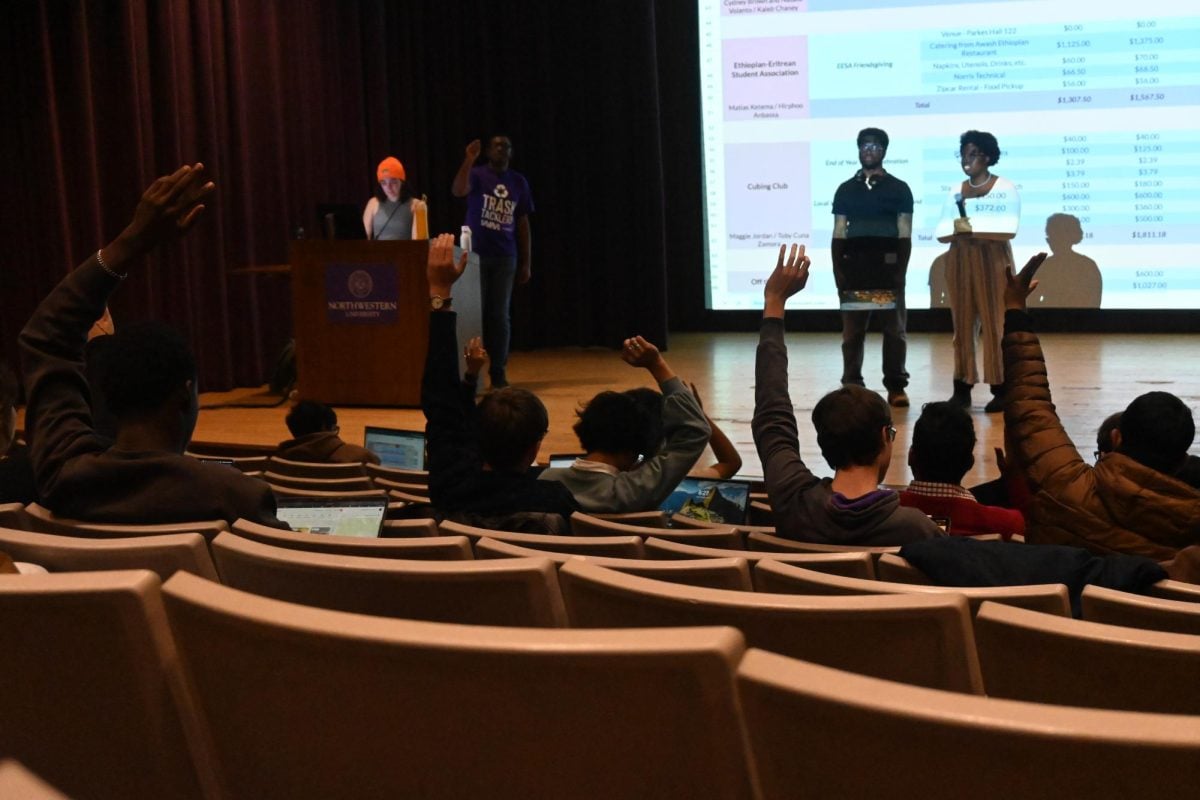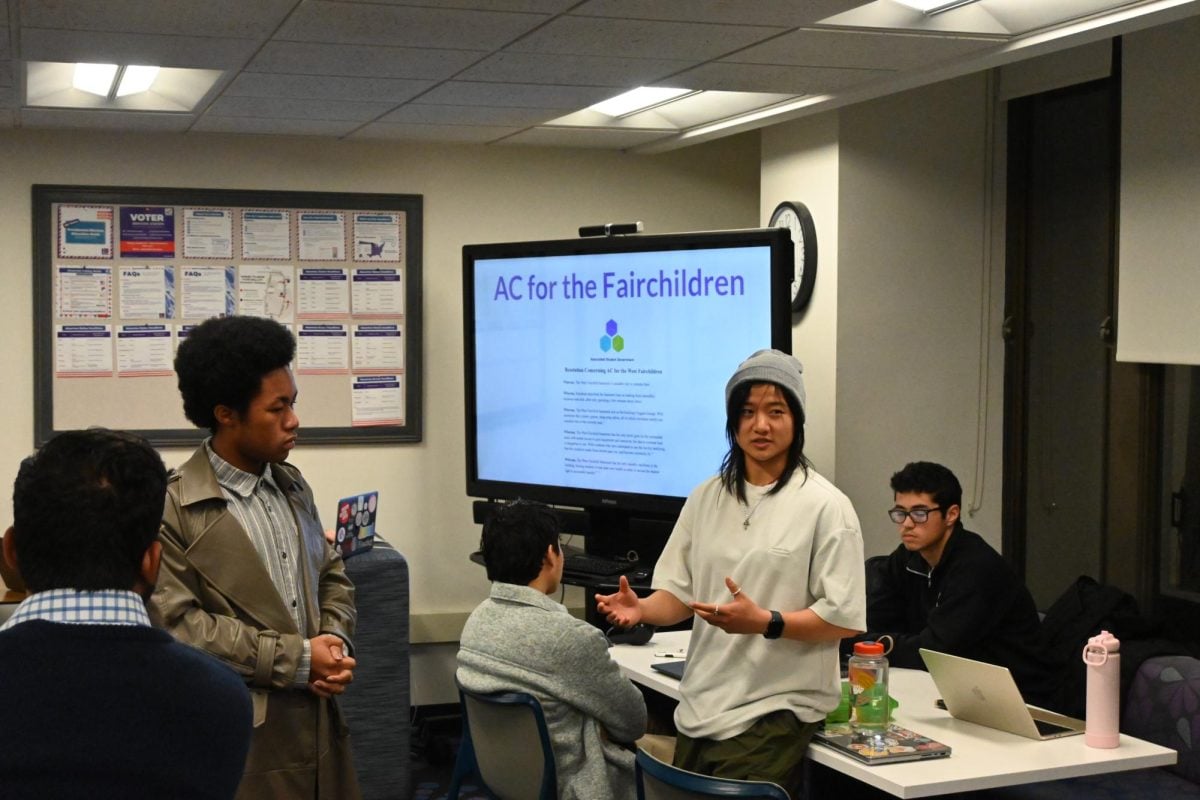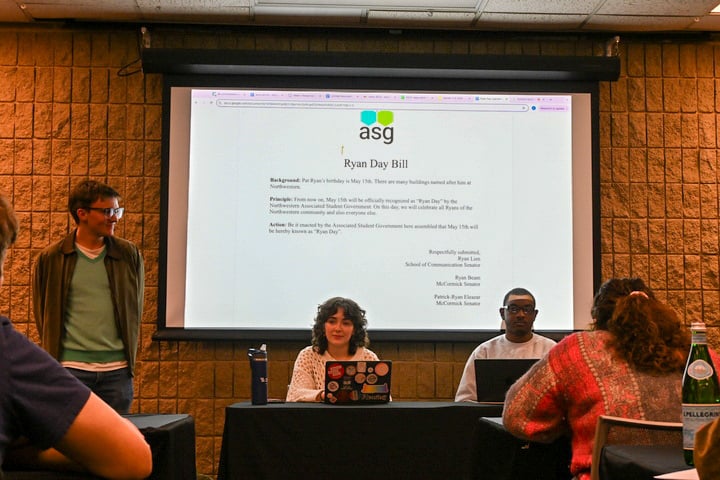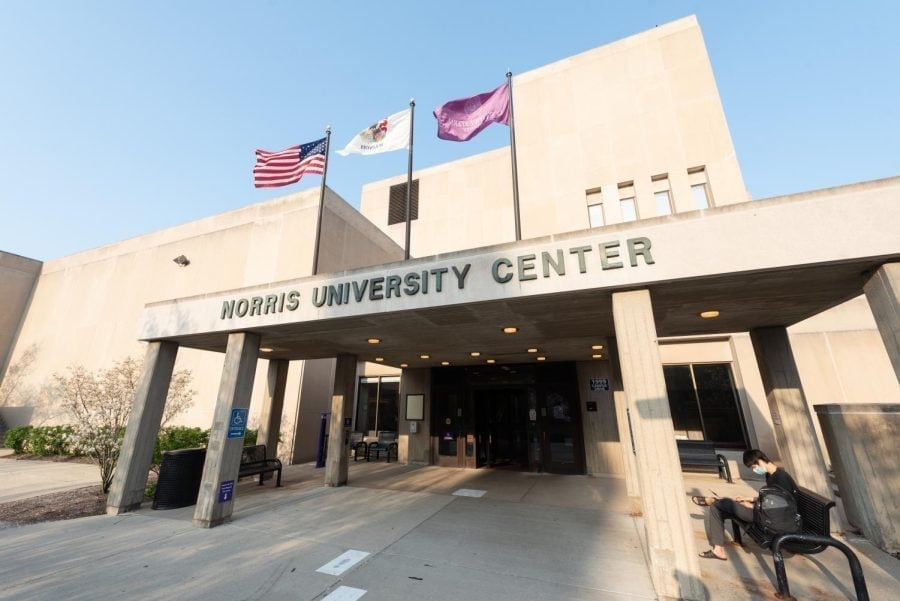ASG Senate passed legislation clarifying senators’ involvement with committees before unanimously electing three new members to the Rules Committee at its meeting Wednesday night.
Weinberg junior Francis Brooke, SESP freshman David Harris and Weinberg sophomore Isaac Hasson won as the only candidates nominated for the positions.
“I’m excited to serve on the Rules committee in that it gives me the opportunity to further engage with Senate, address the flaws of this institution as well as sit in a position that keeps me in constant communication with the entire body,” Harris said.
Brooke had already served on the committee for a year prior to Wednesday’s election.
“I like the Rules committee because it lets you handle legislation,” he said. “It keeps you really into what’s going on in Senate and on the pulse of the student body.”
Directly before the election, Harris motioned to bring a piece of emergency legislation to the floor. According to what he said is a little-known Senate rule, no senator can serve and vote on two separate committees. Harris suggested reversing this code. In response, Brooke proposed a friendly amendment that requires senators looking to serve on multiple voting committees to receive individual permission.
“I didn’t think that we should just openly allow anyone to serve and vote on more than one committee because voting in these committees is a big time commitment and we want to avoid overstretch,” Brooke said. “This allows a provision for students who want to vote on more than one committee to be able to do that given express consent of the Senate, so it’s more of a case-by-case basis.”
Senate passed the legislation with Brooke’s amendment.
“It is important that passionate senators have the ability to fully engage in the ASG matters if they choose to do so,” Harris said. “This fixed a loophole in our code that had already led to an oversight.”
This oversight refers to ASG senator Brandon McNamara’s voting position on both the Rules Committee and Student Groups Committee, McNamara said. McNamara, a Communication sophomore, said he did not know his involvement violated Senate code until right before the meeting.
“All senators are required to serve on at least one standing committee, and the case is that many do not,” McNamara said. “I feel that if a senator wants to serve on more than one in a capacity that wouldn’t force them to be in a nonobjective position, like being on two committees that provide funding. They should be allowed to put their passion to their best ability because the committees are really the driving force behind what ASG does.”
Although ASG senator Aaron Zelikovich said he supports the new legislation, he said he believes in general senators should not vote on multiple committees. Whatever his opinion, the Weinberg freshman said he disapproved of the amount of time spent on deciding this issue.
“Going back to the problem of Senate, we again have spent 25 minutes on an internal issue that has no significance,” Zelikovich said. “I agree with what was passed. I disagree with how it was passed…that’s not what Senate should be focusing on, and that’s not what students at Northwestern care about.”
The concerns of NU students are just what ASG President Claire Lew said she hoped to address with her proposal to restructure Senate, reducing the number of senators from 49 to 20 and holding campus-wide elections for each position. Lew, a SESP senior, said these changes would better facilitate conversation within Senate, give senators a greater sense of obligation and standardize the election process for each ASG caucus. More importantly, she said she hoped to start a conversation in Senate about making ASG more effective.
ASG Senator and Weinberg freshman Ani Ajith, a Daily staffer, proposed an alternative restructuring of ASG in what he told the Senate would be a “more incremental approach.” Ajith’s plan would cut three of the four ASG caucuses in half but allow the student groups caucus to determine whether to reduce its number of Senate seats on its own.
Zelikovich said he agreed with Lew’s notion of radical change and thought Ajith “had good intentions.” However, he said both proposals ignore the ASG’s true problem by focusing on the amount of Senate seats.
“It’s not about the number– it’s about how do we get senators to do what they need to be doing,” Zelikovich said. “We’re evading the real issue at hand. It’s not about numbers. The fact is we’re not using the resources we have.”
Zelikovich said he will introduce his own proposal next week. Senators will also debate and vote on Lew and Ajith’s proposals. Regardless of the voting outcome, Lew said she wants the Senate to openly discuss how to improve ASG.
“You want to be able to create the best experience possible, so being able to have ownership over how things happen at your time here,” Lew said. “Senate, in its purest form, is supposed to be the means of how you do that. It’s supposed to be your voice. That’s the concept that drives ASG, and we just don’t execute on that.”






